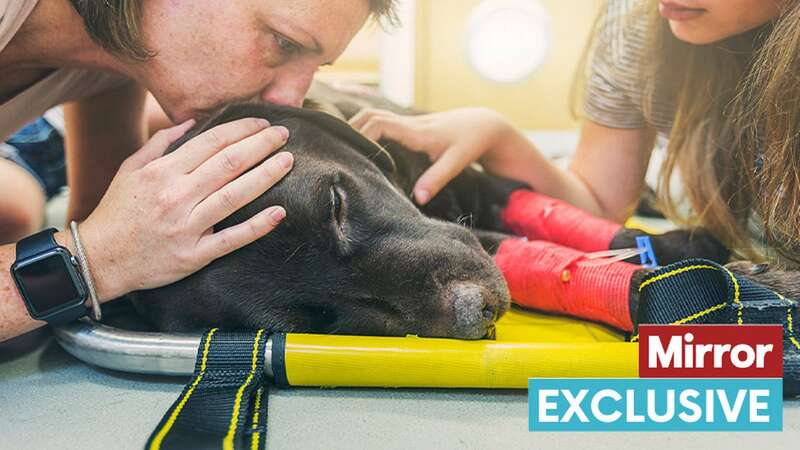
While it may never feel like the right time to say goodbye, there are signs your beloved pet is nearing the end of its life.
Pet bereavement counsellor Kirsty Godsell has supported hundreds of owners through their grief over the last decade, and she believes losing a pet can be as painful as losing a human companion - but there are things we can do to make loss more bearable.
Alongside four other veterinary experts, Kirsty has launched the Association of Pet Bereavement Counsellors (APBC) to support grieving pet owners nationwide. The association, which is the first of its kind in the UK, aims to break the taboo of pet loss and regulate the industry with a directory of specialist counsellors.
 Counsellor Kirsty Godsell advises ranking your dog's daily activities from one to 10 (Kirsty Godsell)
Counsellor Kirsty Godsell advises ranking your dog's daily activities from one to 10 (Kirsty Godsell) Owners can then see if their pet's quality of life is declining over time (stock photo) (Getty Images)
Owners can then see if their pet's quality of life is declining over time (stock photo) (Getty Images)Kirsty believes pet bereavement is swept under the rug and some owners need specialist support after they experience loss. She told the Mirror: "I don't think society in general takes pet grief seriously. It's definitely a taboo subject still and you tend to find that unless people have experienced it, they don't understand it or have the emotional resources to relate."
Sharing her advice for owners who may think their pet is nearing the end of their life, Kirsty said: "I always recommend noting down your pet's daily activities from one to 10. So if they are super food-orientated, are they starting to go off their meals? If they're not enjoying it anymore, they're a three of four.
 Man fined £165 after outraging the internet by dying puppy to look like Pikachu
Man fined £165 after outraging the internet by dying puppy to look like Pikachu
"You can mark down whether they like going for walks, playing with their toys, visiting their grandma etc. Over the course of weeks or months, you can physically see those numbers dropping. Sometimes, people need to see tangible evidence that their pets are declining before they have quality-of-life discussions with their vet."
Kirsty added: "If you know your pet, and they are part of your family, then you can see when they aren't enjoying life and everyday tasks are becoming tough for them. Maybe they're sore or sleeping more. I would always suggest talking to a professional. They are there to provide the best for your pet and they will never lie to you."
After your pet has passed, it may be important to you to keep their memory alive. "I would advise putting lots of photos around the house or planting memorial trees," Kirsty said. "Roses have a varying array of names and you can often find one that is the same or similar to your pet. A lot of my clients like to turn their dog's water bowl into a succulent planter."
Kirsy warned adult pet owners not to forget about younger members of their family as they grieve. She said: "People often assume teenagers know how to deal with grief. Young adults and children between the ages of five and 10 can struggle and it can become a core memory. I encourage people to get the whole family involved in counselling, as teenagers can be very good at hiding things."
APBC offers meetings with counsellors face-to-face, on video or telephone calls, or out and about - for example, Kirsty will often do walks in nature with her clients. She added: "Some people deal with grief much better and others need that bit of guidance, especially if their pets are integral to their lives, such as support animals, or have experienced traumatic pet loss."
To get in touch with Kirsty, visit APBC's website. If you have a story to share, email nia.dalton@reachplc.com.
Read more similar news:
Comments:
comments powered by Disqus































